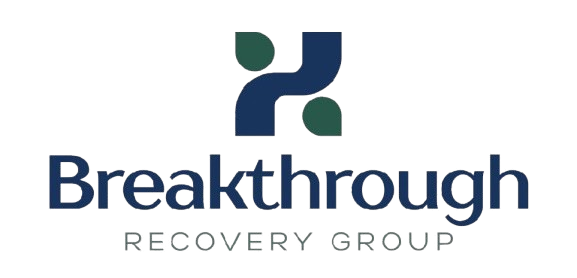Drug and Alcohol Assessment in Spokane
Addiction can feel overwhelming and isolating, but seeking help is a courageous and empowering first step toward reclaiming your life. For Spokane residents grappling with substance abuse or supporting a loved one through recovery, a Drug and Alcohol Assessment in Spokane is often the first meaningful stride toward healing and lasting change. These assessments are designed to provide a clear picture of your situation, helping medical and counseling professionals create a personalized treatment plan tailored to your unique needs. The process involves a detailed evaluation of your substance use, mental health, and lifestyle factors, ensuring that no aspect of your recovery journey is overlooked. Whether it leads to outpatient counseling, inpatient treatment, or other forms of support, the assessment serves as a crucial roadmap for your path forward. This comprehensive guide explores what assessments involve, how they can positively impact your life, and the many local resources Spokane offers to support you every step of the way on your recovery journey.
What Is a Drug and Alcohol Assessment?
A Drug and Alcohol Assessment in Spokane is a professional evaluation used to identify substance use patterns, their impact on mental and physical health, and the level of care required for recovery. These assessments are essential for diagnosing addiction severity and developing tailored treatment plans. Professionals trained in addiction and mental health conduct these assessments. Common assessors include clinical social workers, drug and alcohol counselors, licensed therapists, and psychologists. Their credentials and experience ensure a fair, thorough process that aligns with evidence-based practices.
Why Are These Assessments Important?
Whether you’re seeking help voluntarily or due to a court order, a drug and alcohol assessment in Spokane is a pivotal step in the recovery process. This thorough evaluation allows professionals to understand your unique situation, providing clarity on the extent and nature of the substance use issue. It goes beyond just identifying the problem—it helps determine underlying factors, such as mental health concerns or environmental triggers, that may contribute to the behavior. By assessing these elements, the process sets the foundation for a personalized care plan tailored to your needs, aimed at achieving long-term recovery, improved well-being, and a healthier future.
The Legal Implications in Spokane
Drug and alcohol assessments aren’t just tools for personal growth; they can also play a central role in Spokane’s legal system, particularly in cases involving DUIs or DWIs. These evaluations are designed to determine the extent of an individual’s substance use and its potential impact on their behavior, decision-making, and overall wellbeing. Courts often require individuals charged with such offenses to complete these assessments as part of their case resolutions, using the findings to guide sentencing, treatment recommendations, or eligibility for diversion programs. By addressing underlying issues, these evaluations aim to promote accountability and reduce the likelihood of repeat offenses.
Court-Ordered vs. Voluntary Assessments
- Court-Ordered Assessments: These are mandated by a judge and are typically tied to legal cases such as DUI, public intoxication, or substance-related crimes. They help courts determine appropriate legal outcomes, such as required treatment programs or educational courses.
- Voluntary Assessments: A voluntary assessment is sought by individuals who want help without legal pressure. Many Spokane residents turn to voluntary evaluations to proactively address their substance use and gain access to the support they need.
Note: Regardless of whether an assessment is voluntary or court-ordered, the confidentiality of your evaluation remains a priority, making it a safe space to be honest about your struggles.
Preparing for Your Assessment
Proper preparation is key to easing pre-assessment nerves and ensuring a smoother, more confident experience. Start by taking the time to thoroughly understand the process—know what to expect, the steps involved, and any specific requirements. Gather all necessary materials in advance, such as identification documents, study guides, or relevant resources, to avoid last-minute stress. If possible, practice with sample questions or similar scenarios to get a feel for what the assessment might involve. These small but important steps can significantly boost your comfort level and confidence, helping you approach the assessment with a clear and focused mindset. Remember, preparation is not just about knowing the material; it’s about creating an environment where you can perform at your best.
Documents to Bring
- A government-issued photo ID to verify your identity. This can include a driver’s license, passport, or any other official identification with your photo and full name.
- Any relevant medical records that could provide helpful background information about your health history, such as past diagnoses, treatment plans, or test results. Bringing these can give your provider a better understanding of your overall health.
- Legal documents, especially if your assessment has been mandated by a court or legal authority. These might include court orders, legal notices, or any documentation outlining the purpose of the assessment.
- Your insurance information, including policy details, group numbers, or pre-authorization letters, to ensure proper billing and avoid unexpected costs. Make sure the information is up to date for smooth processing.
- A detailed list of any current medications you are taking, including the name of the medication, dosages, frequency, and the reason you are taking them. This information helps prevent potential drug interactions and ensures your provider has a full picture of your treatment.
Emotional and Mental Preparation
Walking into an assessment can feel daunting, especially if you’re unsure what to expect, but it’s important to remember that this process is focused on understanding and support. The goal is to identify your needs and find ways to address them effectively. Be honest and open during your evaluation—share as much detail as you can about your experiences and challenges. This transparency is vital for ensuring you receive the right guidance and resources to help you move forward. Remember, the assessment is not about judgment but about helping you get the assistance you truly need.
What to Expect During the Assessment Process
The idea of a drug and alcohol assessment may feel intimidating if you’re unsure what to expect. Here’s a breakdown to help ease any uncertainty:
- Questionnaires and Screening: These tools gather information about your substance use, mental health history, and lifestyle. Assessment tools often include standardized tests such as the ASAM (American Society of Addiction Medicine) criteria evaluation.
- An Interview: A licensed professional will sit down with you to discuss your history, symptoms, behaviors, and goals. This conversation is non-judgmental and focuses on gaining accurate context for your care plan.
- Confidentiality and Privacy: Your responses are protected. Results are only shared with approved parties, such as the court—if legally required—or your treatment provider.
After the Assessment: Understanding Your Results
Following the evaluation, the assessor will provide a comprehensive report that includes:
- Results/Findings: Clear insights into your substance use patterns and their potential impact on your health and daily life.
- Recommendations: Suggested next steps, which may include outpatient counseling, group therapy, rehab programs, or educational workshops.
You’ll also receive guidance on local resources and treatment options to help implement the plan.
Navigating Treatment Options in Spokane
Spokane is home to a wealth of resources designed to meet diverse recovery needs, offering both public and private care facilities with a wide range of services. From inpatient treatment centers that provide structured, 24/7 care to outpatient programs tailored for those seeking flexibility, the city ensures that individuals can find the support that fits their unique situations. Counseling services are available to address mental health challenges and substance use, while support groups create a sense of community and shared understanding. Additionally, Spokane boasts specialized programs for different demographics, including youth, veterans, and families, ensuring that everyone has access to the care they need to embark on their journey to recovery.

Local Rehabilitation Resources
- Public Treatment Facilities: These facilities offer affordable services, often based on sliding-scale fees to accommodate individuals with varying financial situations. They are typically funded by government programs and are designed to ensure that essential treatment is accessible to low-income populations. While they are cost-effective, they may have longer wait times due to high demand.
- Private Treatment Centers: Private facilities often provide more personalized and comprehensive care, with access to advanced treatment options and shorter wait times. They may offer additional amenities, such as private rooms or holistic therapies, but these benefits typically come at a higher cost, making them less accessible for some individuals.
Support Groups and Community Resources
Spokane offers a variety of support groups to assist individuals on their recovery journey, including Alcoholics Anonymous (AA) and Narcotics Anonymous (NA), which follow a 12-step, faith-based approach to recovery. For those seeking a non-religious alternative, programs like SMART Recovery are also available, focusing on self-management and evidence-based techniques. These groups provide essential peer support, creating a sense of community and understanding for individuals in recovery as well as their families, who often benefit from shared experiences and resources. Whether you’re looking for guidance, encouragement, or a safe space to share your story, Spokane’s recovery programs are here to help.
Insurance Coverage and Financial Assistance
One common concern for individuals seeking assessments and treatment is cost. The good news? Many insurance plans cover part or even all of these services, making it more accessible for those in need. It’s always a good idea to check with your provider to understand what’s included in your plan, as coverage can vary. This support can significantly reduce the financial burden, allowing you to focus on getting the care you deserve.
Does Insurance Cover Assessments and Treatment?
Most major insurance companies, including Medicaid, offer coverage for drug and alcohol assessments as well as the treatment plans that follow. This coverage can help reduce the financial burden often associated with seeking help for substance use issues, ensuring that more individuals have access to the care they need. However, coverage details can vary depending on your provider and specific plan. It’s important to contact your insurance company directly to verify what is covered, including any co-pays, deductibles, or requirements for pre-authorization.
What if You Don’t Have Insurance?
Spokane offers various options for financial assistance to help individuals access the care they need. State-funded programs provide support for those who qualify, ensuring that evaluations and treatment are not out of reach. Additionally, community grants are available through local initiatives aiming to reduce financial barriers to healthcare. Charitable organizations in the area also play a crucial role, offering aid to those in need. Many local nonprofits and clinics provide sliding-scale fees based on income, making services more affordable for low-income families. These resources work together to ensure that everyone, regardless of financial situation, has access to essential care and support.
Success Stories: Recovery Journeys in Spokane
Hearing from others who’ve successfully navigated their path to sobriety can be a powerful motivator. Take Monica, for example. After a court-ordered assessment following a DUI, she began attending local group therapy and has now been sober for three years. Monica credits the “no-judgment” guidance she received during her assessment for changing her life. Or consider John. After years of struggling, he voluntarily sought a drug and alcohol assessment. The personalized care recommendations led him to a Spokane-based private rehab center, where he overcame addiction and became an advocate for others facing similar struggles.
Conclusion
If you or someone you know is battling addiction, undergoing a Drug and Alcohol Assessment in Spokane is an essential first step toward recovery. This assessment is a comprehensive process designed to evaluate the extent of substance use and its impact on your physical, mental, and emotional well-being. It provides the clarity, guidance, and resources needed to take meaningful action toward a healthier future. You’ll work with compassionate professionals who will listen to your story, understand your unique circumstances, and recommend a personalized plan for treatment or support. Investing in your future begins with a single act of courage. Take the first step by scheduling an appointment with us today by calling 1 (509) 410-4564 or clicking Breakthrough Recovery. You don’t have to face this journey alone—help is just one call away.





